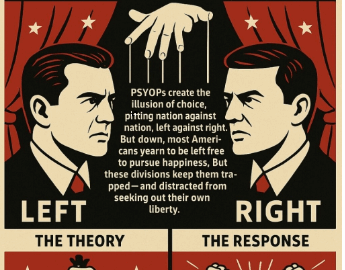In a wide-circulating conversation, Tucker Carlson reflected on a political murder and its immediate aftermath. His remarks—equal parts spiritual, skeptical, and cautionary—offered a framework for how a free people might think and act when emotions run hottest. Whether or not you share his politics, the architecture of his response is worth examining. This article distills the themes in the transcript you shared and maps them to concrete guardrails for citizens, media, and leaders.
Grief first, narrative later
Carlson begins where most of us don’t: resisting the rush to “solve” a shocking event with instant storylines. He admits he doom-scrolled the worst reactions and felt poisoned by the hate. The corrective, he says, is to honor the victim and family first—before theories, before Twitter, before tribal score-keeping. That order matters. When tragedy is treated as content, it becomes fuel.
Guardrail: In the first 48 hours, prioritize verified facts and the humanity of those harmed. Decline the dopamine hit of viral speculation.
Skepticism without cynicism
He stakes out a stance many people share but rarely articulate well: never accept a first explanation from anyone, including your own “side”—yet don’t presume the official version is automatically false. His version of skepticism is methodological, not performative: wait, test claims against emerging evidence, and hold two thoughts at once—“it could be true” and “it could be incomplete.”
Guardrail: Separate withholding judgment from withholding humanity. You can comfort the grieving and still refrain from endorsing a tidy plot.
The spiritual discipline of refusing hate
Carlson’s most jarring pivot is theological. He cites the Gospel command to love enemies and pray for persecutors—not as a slogan but as a nearly impossible discipline. He’s explicit: this does not excuse evil. It restrains our appetite for vengeance that so easily metastasizes into collective blame.
Guardrail: Condemn the killer absolutely; refuse to indict millions who share the killer’s label, feed, or demographic. Collective guilt is the seed of collective punishment.
“Order” is not a slur
He argues that the country needs a restoration of basic public order—not as a euphemism for racism or authoritarian shortcuts, but as the non-negotiable precondition for peace and happiness. Chaos corrodes freedom; so does a panicked “order” that shreds rights. The hard civic work is securing safety while keeping constitutional guardrails intact.
Guardrail: Reject false binaries. The choice is not riot or police state. It’s stable liberty, built on due process, equal protection, and predictable enforcement.
Beware the two quickest bad paths
The transcript names—and rejects—both knee-jerk routes societies take after a terrorizing act:
- The mob path: public celebration of a death, dehumanizing rhetoric, and online revelry. This moral rot invites escalation and legitimizes retaliatory crackdowns.
- The state path: a “for your safety” expansion of surveillance, censorship, or speech controls aimed at an entire faction. History shows these powers rarely stay narrow or temporary.
Guardrail: If a proposed “solution” feels like punishing the out-group or enlarging the state’s censorial reach, it likely worsens the disease it claims to cure.
Tools for citizens in the fog
The transcript’s host echoes a simple civic toolkit that travels well across controversies:
- Hold the line on facts. Consume primary sources before hot takes. Distinguish reporting from reactions to reporting.
- Follow incentives. Ask who benefits from a given storyline. Hype and fear both sell.
- Audit your feed. Viral clips are real people, but not representative reality. Curate for breadth, not adrenaline.
- Refuse collective penalties. Prosecute individuals; safeguard the innocent—especially when they are your ideological opponents.
Historical echoes—useful, but handle with care
The conversation gestures to prior American inflection points where elite narratives, foreign wars, or epidemics of fear licensed domestic overreach. The lesson isn’t to see conspiracy everywhere; it’s to remember how easily emergency logic hardens into permanent policy.
Guardrail: Let history inform prudence, not paranoia. Analogy can illuminate tendencies, not substitute for evidence.
The courage to choose wisdom over safety
One line sticks: a relative tells Carlson, “I’m not praying for your safety; I’m praying you seek wisdom.” Safety is a legitimate good; wisdom decides which means to pursue it won’t bankrupt our liberties. In a culture trained to react, wisdom is countercultural: it waits, weighs, and often disappoints the crowd.
Guardrail: Build habits that make wisdom more likely—slow news intake, cross-partisan reading, and a bias for primary documents over punditry.
What leaders, platforms, and newsrooms should do now
- Leaders: De-escalate language. Condemn the act without amplifying dehumanizing memes about the other side. Don’t fundraise on fresh blood.
- Platforms: Downrank unverified “explainers” and synthetic outrage; label rumor as rumor; give prominence to official updates and calls for tips—then get out of the way.
- Newsrooms: Separate live reporting from analysis; stamp time on evolving claims; build explainer pages that track corrections in one place; foreground victims and verified timelines over pundit clips.
The citizen’s pledge
You don’t need a blue check or a title to reduce the blast radius of political violence. You need a posture:
- I will not celebrate any death.
- I will not spread unverified claims.
- I will not assign collective guilt.
- I will defend due process even for those I oppose.
- I will prize wisdom over outrage, and truth over tribe.
The point of all this isn’t to be pious. It’s to stay free. Democracies don’t usually die with a single bullet; they erode when enough people decide that hate, shortcuts, and collective punishment feel good in the moment. The transcript you shared argues—persuasively—that the way out is older and harder: mourn, restrain, verify, and then act with a steadiness that honors both the dead and the living Constitution.
Point-by-Point Breakdown of the Tucker Carlson/Megyn Kelly Conversation (re: the killing of Charlie Kirk)
Quick fact status (what’s firmly known so far): Charlie Kirk was fatally shot at Utah Valley University on Sept. 10, 2025; major outlets and the Wikipedia entry on the incident report the weapon as a .30-06 bolt-action rifle; a manhunt and subsequent developments followed.
A) Carlson’s core positions and immediate reactions
- Reflexive skepticism: He reiterates he never accepts any “official story” at face value and warns against settling on first explanations from anyone.
- Emotional spiral & “marinating in hate”: After doom-scrolling reactions (including celebratory posts), he says the hatred is spiritually corrosive and resolves to step back.
- Gospel lens (Luke 6): Cites “love your enemies / pray for your persecutors.” He admits living that ethic is humanly impossible without “supernatural intervention,” but insists that’s the standard.
- Order without authoritarianism: Calls for restoring order—not as code for racism or rights violations—but as a prerequisite for peace and “joy.” Order ≠ tyranny, in his framing.
- Focus on the victim & family: A trusted friend urges him to avoid conspiracy dives and, first, honor Charlie Kirk, his wife, and their children; Carlson agrees to proceed with “wisdom and restraint.”
- Wait for facts, but stay skeptical: He urges patience with evolving facts while keeping healthy skepticism toward pat explanations.
B) Weapon, intent, and planning
- Caliber clarification: He contrasts a .223/5.56 AR-15-type round with the larger .30-06 round and argues the choice and execution suggest forethought, not a spontaneous outburst. (Transcript mis-speaks “306/386”; press accounts say .30-06.)
C) The host/commentator’s insertions (separate from Carlson)
- Unequivocal condemnation of celebration: Says reveling in the murder is “vile,” warns it can boomerang into calls for harsh “right-wing totalitarian” responses.
- Hold off on theories: Notes rumors (e.g., motive symbolism) but says to wait for corroborated facts; warns against instantly labeling it a “deep state plot.”
- Civil-war framing caution: Pushes back on language that inflames “us-versus-them,” arguing that collective blame or punishment of “the left” would be disastrous.
- Historical analogies: Flags how wartime violence and propaganda (Vietnam era; 9/11; COVID divisions) can incubate domestic crackdowns; urges avoiding repeat mistakes like collective punishment (e.g., WWII internments).
D) Shared prescriptions & red lines
- No collective guilt: Prosecute the killer to the fullest, but don’t criminalize or censor broad swaths of political opponents for one man’s act.
- Radical transparency, but disciplined inference: Demand evidence, follow the money, maintain skepticism—and resist jumping to conclusions before investigations mature.
- Seek wisdom over vengeance: Carlson quotes a relative praying not for “safety” but for wisdom; both voices endorse truth-seeking, reason, and restraint amid outrage.
- Guardrails of a free society: Re-center due process, civil liberties, and opposition to endless wars/debt/inflation; avoid letting tragedy justify a new surveillance or censorship regime.
E) Where the transcript overreaches or needs caveats
- Celebratory videos: Carlson describes real accounts he saw; scope and representativeness are unknown. Treat viral clips as data points, not the whole public.
- “Well-planned assassination”: The caliber and circumstances plausibly suggest planning; still, motive, network (if any), and full timeline are matters for the investigation. (Ongoing coverage notes the .30-06, manhunt/arrestee developments.) Wikipedia+1
- Arrests/rumors: Claims about briefly detained people or specific ideological markings should be regarded as provisional until law-enforcement briefings firm them up.
F) Bottom line
- Carlson’s through-line: spiritual humility, refusal to “marinate” in hate, skepticism toward instant narratives, and a call for order that respects rights.
- Host’s through-line: condemn celebratory cruelty; don’t weaponize the tragedy to punish millions; beware propaganda cycles that trade liberty for “safety.”
- Your takeaway: Mourn the victim; protect the innocent; insist on facts; reject collective blame; and defend the civil-liberty architecture that keeps tragedies from becoming pretexts for permanent emergency rule.
Key references for confirmed facts used above: reporting and reference entries on the incident and weapon.





